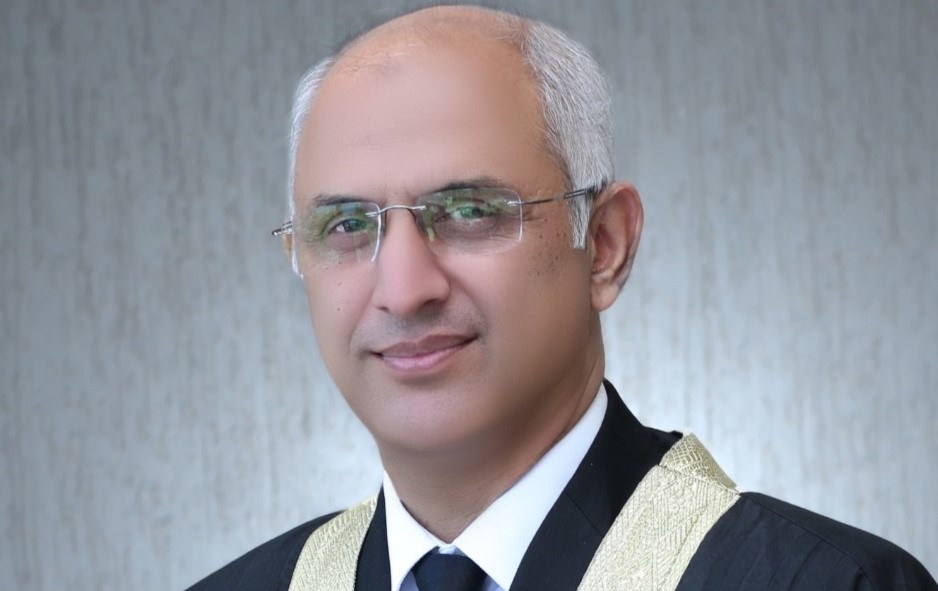
Justice Mohsin Akhtar Kayani’s Warning on Intelligence Officials’ Accountability
While Pakistani citizens were in the midst of the legal debate concerning this rather troubling case involving enforced disappearances, Pakistan’s respected Justice Mohsin Akhtar Kayani delivered an inspiring message to both engaged advocates from either side and everyone else present inside the courtroom. Justice Kayani asserted with unwavering certainty that it is inevitable for there to come a time when intelligence officials who have been involved in the abduction of people from various areas within Pakistan will be made answerable and brought into court. The soberness of the judge’s words highlighted that there was an urgent need for a legal rectification on cases that had left families devastated and citizens missing. From this announcement by the Hon’ble Mohsin Akhtar Kayani, we get a hint about how accountability and justice have reach to those empowered ruling over matters related to national security and intelligence.
Petition Hearing on Implementation of Inquiry Commission’s Recommendations
The strong statement by Justice Kayani resulted from the trial going on concerning the adoption of recommendations made about the Commission of Inquiry into Enforced Disappearances. 2011, this key commission was set up only to discover missing persons and in no less significant a way, pinning responsibility on people or organizations held responsible for these sad cases. As an important tool in seeking justice, the commission sought to illuminate what happened during forced disappearances and highlight that there was a pressing need for those involved to be punished for their actions. Justice Kayani’s mention of the commission highlights this as an important institution that influences how Pakistani law views missing people and criminalizes their disappearance within a broader framework aimed at making enforced disappearances history.
AGP Awan’s Report on Recovered Individuals
A significant number of individuals, such as AGP Mansoor Usman Awan and others gathered during the recent hearing to discuss the urgent issue at hand. AGP Awan played an important role as she updated the assembly that a considerable number of 68 individuals had been recovered successfully. In a clear attempt to be accountable, the AGP went ahead and provided Imaan Zainab Mazari-Hazir who was acting on behalf of Baloch students’ legal heirs with the complete list of these recovered individuals. This sharing of information was a significant highlight in the process as it revealed transparency and communication from those directly involved. AGP Awan and Mazari-Hazir’s collaboration helped highlight the achievements made in the recovery efforts; however, there are debates over whether those numbers reported are accurate or not, which added some depth to procedures that continue within legal circles.
Discrepancies in Recovery Numbers
The tables turned dramatically when Mazari raised skepticism and questioned the veracity of the information that was established at this hearing. Mazari indicates that the reports of recovered people were not in line, 56 had been confirmed alive out of the ones claimed to have survived and 12 are still missing. This difference in numbers added another level of complexity to the existing legal proceedings making it more necessary for people out there to scrutinize whether these recovery efforts were truly effective or not.
The divergence in the indicated numbers became the focal point of discussion, with AGP Awan admitting these differences. In response, AGP Awan offered a different view saying “According to our information 15 are missing while according to theirs about 12 are missing.” These diametric accounts highlighted the difficulties in obtaining accurate and reliable or consistent data raising serious questions over this whole episode.
Justice Kayani’s Call for Institutional Undertakings
As a preemptive approach to avoiding similar cases of enforced disappearances in the future, Justice Kayani strongly urged major branches, particularly targeting the Prime Minister’s Office and Ministry of Interior. Encouraging them to submit undertakings, he looked for an assurance that strict measures would be developed henceforth so that no one could get lost again in the future. Focusing on the great importance of state institutions to compliance with the rule of law, Justice Kayani highlighted how crucial their role is in maintaining justice and accountability.
As the judge urged confidence in courts, he pointed out that state institutions would have to be able to trust in legal system. In her demand for undertakings, Justice Kayani aimed to create a proactive infrastructure through which the causes of enforced disappearances could be addressed at their source. This framework would reflect fidelity with transparency, accountability, and rule-by-law considerations as we enter into corridors of power.
State Institutions and the Rule of Law
In one stern and unambiguous statement, Justice Kayani emphasized the critical link between enforced disappearances on the other hand and breakdown in state institutions to adhere to the rule of law. He spoke about it with an unwavering conviction, stating that institutions deviating from legal norms and principles are the root cause of such incidents being widespread. Justice Kayani articulated by drawing attention to the ongoing trials of terrorists and criminals within the judicial system that justice must be given universally.
About the targeted context of Balochistan, he insisted that anyone who was determined as anti-state components had to face trial processes. The legal system became a formidable tool to ensure that justice and due process of law will be applicable for all individuals irrespective of their affiliations by associating the problem with an overarching appeal for accountability and fairness after Justice Kayani placed enforced disappearances struggles alongside this broader call.
Concerns Raised by Mazari on CTD Personnel Practices
With compelling revelation, Imaan Zainab Mazari-Hazir highlighted heartrending statements from relatives of the disappeared persons revealing a gruesome trend. She stated that families said CTD personnel got hold of their relatives and therefore registered cases against them. This discovery brought a disturbing angle to the debate on enforced disappearances, pointing at possible power abuses among bodies like law enforcement agencies.
The judge visibly disturbed by these allegations was concerned deeply about the reported practices. In a firm position, he stated that Pakistan could not take such actions and branded himself as part of the general feeling that there are values where citizens’ rights within an equitable legal system to be protected must never compromise. This exchange in the courtroom highlighted a pressing demand for examination and change within law enforcement, underscoring how the judiciary acts as an anchor against possible misuse of power and human rights abuses.
Threats and the Role of Death Squads
However, in disturbing news, Mazari informed the court about the disconcerting conditions of Baloch protesters who were receiving threats from a death squad that was said to be working under government cover. Justice Kayani was visibly dismayed by this kind of disclosure and recognized that such actions could seriously damage the reputation of a nation. In deep concern about the reputation of the country, Justice Kayani acted swiftly to ensure that immediate safety is guaranteed for those at the protest.
Upon realizing the gravity of the situation, Justice Kayani ordered Kohsar Police Station in Islamabad to step up and make sure that Baloch protesters within its jurisdiction are protected. This significant step highlighted the judiciary’s support for people who wished to voice out their complaints peacefully and without much fear of intimidation. The court’s aggressive approach to ensuring the welfare of protesters reinforced an underlying message about justice, responsiveness, and protection of basic rights in its legal proceedings.


